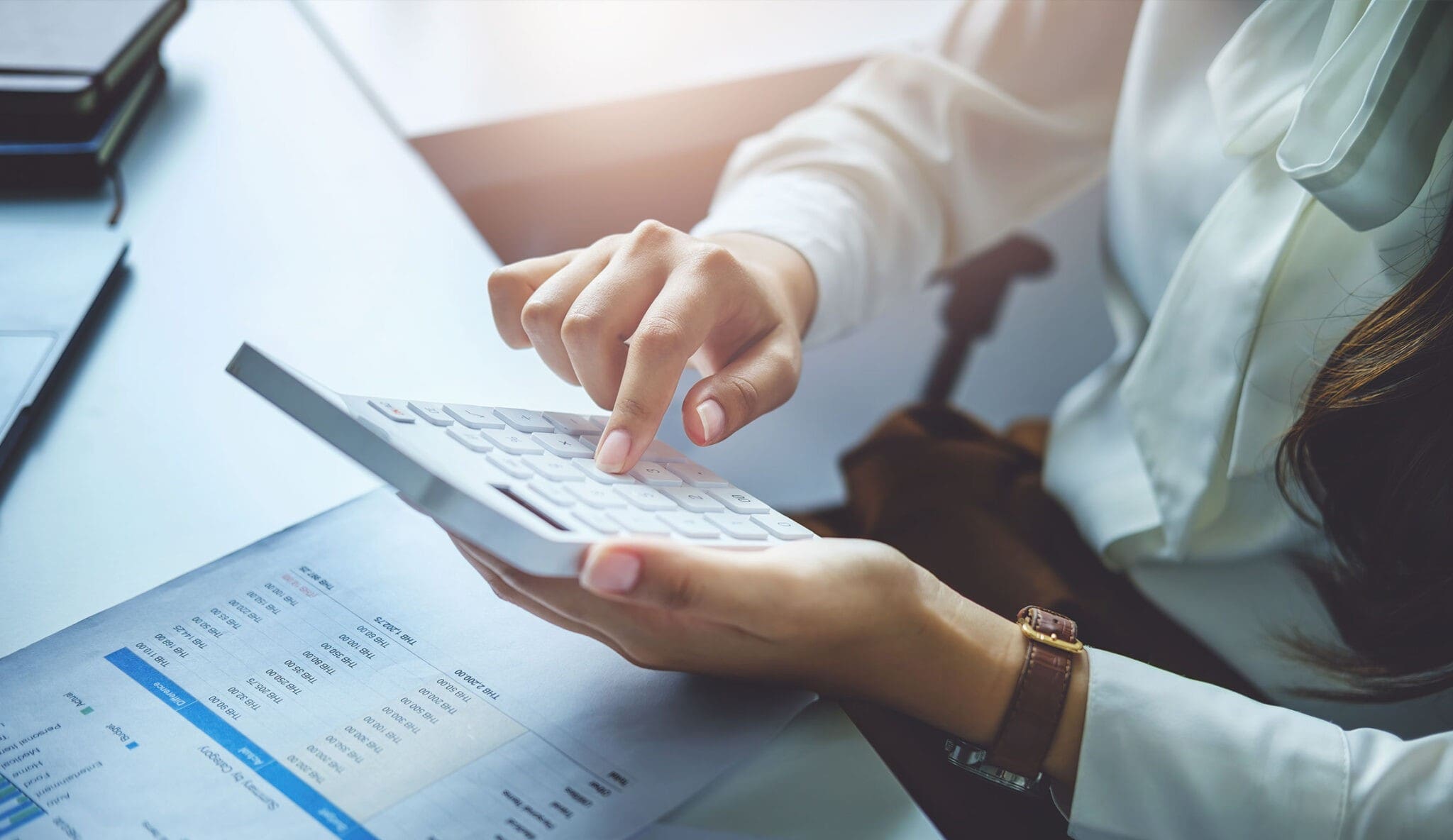Self-Assessment Tax, Tax Compliance
Your essential guide to Self Assessment tax returns
Getting your self-assessment tax returns right the first time is crucial for any company director, sole trader, freelancer or contractor who wants to avoid costly issues and keep themselves on the good side of HMRC.
The process can be daunting to say the least, especially for those that have no previous experience in filing a Self Assessment return. Yet even for those who have submitted multiple returns in the past, there are multiple pitfalls which often lead people to make mistakes and pay more tax than they should.
According to the latest figures from GOV.UK, HMRC was due to receive 12.2 million Self Assessment returns last year. However, nearly 1.5 million of these customers have put themselves at risk of formal investigations and fines by failing to meet the deadline for submission.
Preparation is key, which means keeping your financial records in good order so you’re able to file accurately and punctually by the time HMRC’s annual deadlines come around. This is just one of the reasons why many individuals and businesses choose to call on the support of an experienced adviser to help them navigate their obligations.
At Gerald Edelman, we work closely with company directors, freelancers and contractors to help them navigate the ins and outs of self-assessment from start to finish – which is why we’ve put together this useful guide containing everything you need to know.
What is Self Assessment?
Self Assessment is the system that HMRC uses to collect income tax from those who do not pay their taxes automatically at source or earn over £100,000. For example, an employee will usually have their tax collected through the Pay As You Earn (PAYE) system, so they do not need to file a self assessment return to account for this income.
Who needs to submit a Self Assessment return?
You must submit a Self Assessment return if you meet one or more of the following criteria outlined by HMRC:
- You are self-employed as a sole trader and earned more than £1,000 (before tax relief)
- You are a partner in a business partnership
- You wish to claim income tax relief
- You need to prove self-employed status in order to claim allowances
- You have income (or partner’s income) over £50,000 and claim child benefit
- You have any untaxed income other than wages or pension
You may also need to submit a return if you have any other untaxed income, including:
- COVID-19 grant or support payments
- Money from renting out a property
- Income from savings, investments and dividends
- Foreign-sourced income
When is the deadline for Self Assessment?
There are several important deadlines at different stages of the Self Assessment process:
- Registering for Self Assessment – If you’re self-employed or a sole trader (not self-employed, or registering a partner or partnership) you must register by 5 October.
- Filing paper tax returns – Paper returns must be submitted by midnight on 31 October.
- Filing online tax returns – Online returns, the most common method of filing, must be submitted by midnight on 31 January.
- Paying tax you owe – Any tax calculated from the previous financial year must be paid by midnight on 31 January.
Please note that the following information is subject to change and you should double-check the deadlines for the current tax year on the GOV.UK website.
How to register for Self Assessment
If you have never filed a return before you’ll need to register for Self-Assessment and Class 2 National Insurance using form CWF1 in order to obtain a Unique Taxpayer Reference (UTR). You should register by 5 October in your business’s second tax year. Failure to register on time may result in fines.
The way of registering may differ depending on whether you are employed, self-employed, a landlord or have other forms of income, so it’s worth checking to make sure you have registered correctly.
If you are not self-employed then you will likely need to use form SA1 to receive your UTR. If you have previously registered for Self Assessment then you can also sign into your personal tax account to reactivate your Self Assessment liability.
How do I submit a Self Assessment tax return?
Once you have received your UTR, you can then log into HMRC’s online Self Assessment portal and create a Self Assessment return. This is where it pays to be organised because you will need to document all details of your taxable income and capital gains from any given tax year.
This includes details relating to:
- Self-employment income and expenses in order to calculate your trading profits or losses
- Property income and expenses if you are a landlord
- Employment and pensions income if you are also employed with a company, including forms P60, P11D and P45
- Pension contributions
- Capital gains profits made over the last year
Although you are not required to attach supporting documents, bank statements, invoices or receipts when filing your return, it’s vital that you keep organised, up-to-date records so that you have a clear audit trail in the event of a partial or full investigation from HMRC.
HMRC requires that you keep records to support your tax return for five years after the 31 January deadline. If you are not self-employed or a landlord then you only need to keep records for 12 months after the deadline. Although paper records are still accepted, it’s worth noting that HMRC has already rolled out a system – Making Tax Digital – through which all businesses will eventually need to submit digital records for certain types of income.
If you still wish to file a paper return then you’ll need to fill in the SA100 form and self-employed SA103 supplement form.
What are the most common Self Assessment mistakes?
There’s a lot to consider with Self Assessment, and it’s surprising how quickly small mistakes can develop into more serious issues further down the line. Here are the common pitfalls that people often fall into when compiling their tax return:
Registering too late
If you don’t register for Self Assessment by the 5 October deadline, HMRC will not issue you with a Unique Taxpayer Reference (UTR) number. It can take weeks to receive your UTR so it’s a good idea to register in plenty of time to make sure you steer clear of any penalties for a late submission.
Failing to pay your tax on time
Not paying your tax by 31 January without a legitimate reason is a big red flag in the eyes of HMRC. This means that your account is more likely to face supervision and potential investigation, as well as being charged additional interest on the total amount due.
Not taking advantage of tax-free allowances
There is a wide range of tax-free allowances that you may be able to benefit from, but that many businesses often overlook. For instance, you might be eligible for a £1,000 tax-free allowance on any income you receive from property or trading. It’s worth speaking to an experienced tax advisor to make sure you are maximising every available opportunity to save money.
Not claiming tax relief on pension contributions
If you make regular private pension contributions then you can receive tax relief on your annual earnings. This is often applicable to high-rate taxpayers, yet many miss out on potential savings because they don’t claim the relief on their pension contributions.
Not planning for payments on account
In addition to the tax you are due to pay for the current year, your business is also required to make a payment in advance to cover part of your bill for the following tax year – known as a payment on account. These advance payments can be a nasty surprise for business owners who are unprepared for them. It is possible to reduce the total payments on account you are required to make, though it’s best to discuss this first with a tax advisor.
Understanding expenses
If you’re looking to minimise your Self Assessment tax bill it’s crucial to have a comprehensive understanding of what you can and cannot claim as a self-employed business expense. From office equipment and software to travel expenses and car mileage, there is a wide range of allowable expenses which can help you save money on your tax bill. There are also a number of lesser-known expenses that often go unutilised simply because business owners are not aware that they can be claimed as an expense.
Many self-employed professionals who work from home choose to claim ‘simplified expenses’, a flat rate deduction accounting for bills and home expenses. However, although this is an easy, time-saving option when completing your Self Assessment return, it may be that you are missing out on a valuable opportunity to reduce your tax bill even further.
This is where it always pays to call on the help of an experienced accountant because they will be able to take an objective look at your business operations and uncover expenses that can be legitimately deducted from your tax bill.
Will I receive a penalty if I make a mistake or miss a deadline with Self Assessment?
The latest guidelines from HMRC state that you may be charged a penalty for one or more of the following scenarios:
- Late filing – You will pay a late filing penalty of £100 if your tax return is filed late, however, this will increase to as high as £1,600 if filed later.
- Late payment – Penalties for failing to pay your tax return on time are calculated according to the amount of tax you owe and how late the payment is made, initial surcharges of 5% of tax owing apply on payments that are 30 days late.
- Failure to notify – If you don’t tell HMRC about important changes affecting your tax liability then you may be charged accordingly. For instance, you must make HMRC aware of any new sources of taxable income or capital gains.
- Tax return errors – Accuracy is everything when submitting your tax return, and HMRC can charge penalties even for small mistakes that misrepresent your final tax bill. If you do make a mistake then you must be able to demonstrate a reasonable excuse or that reasonable care is usually taken to avoid such mistakes.
If you receive any of these penalties then you will have the option to appeal on the grounds of special circumstances or a reasonable excuse. Appeals must be submitted within 30 days of the penalty notice and interest may be charged for any subsequent tax that is paid late.
How can I pay my tax bill?
Once you have submitted your Self Assessment return and HMRC has confirmed the amount you are due to pay, you can settle your bill through one of the following payment methods:
- Online banking
- Telephone banking
- Clearing House Automated Payment System (CHAPS)
- Debit or corporate credit card
- Via your bank or building society
Please note that you cannot pay your tax bill using a personal credit card.
What happens if I can’t pay my tax bill?
If you are struggling to gather the funds to pay your tax bill then you should contact HMRC as soon as possible to discuss your situation.
HMRC will allow you to pay your tax bill in instalments over a set period – usually through monthly or quarterly payments – although this depends on your circumstances and how much you can actually afford to pay. If you do manage to agree on a payment plan and deliver each payment on time then HMRC will not charge you any further penalties.
Get support with your Self Assessment tax return
Rather than go through the stresses involved with Self Assessment themselves, the majority of business owners, freelancers and contractors partner with an expert tax advisor to shoulder the burden so they can focus on running their company.
Get in touch with one of our friendly self-assessment tax advisers today for a free consultation to talk through your situation and get a clearer idea of the best options available to you.





